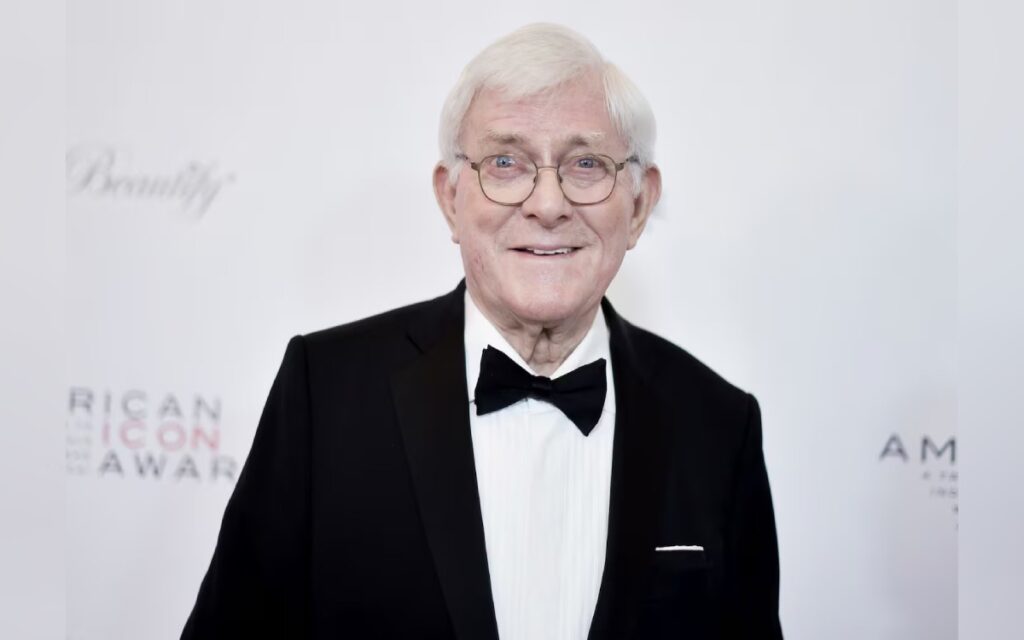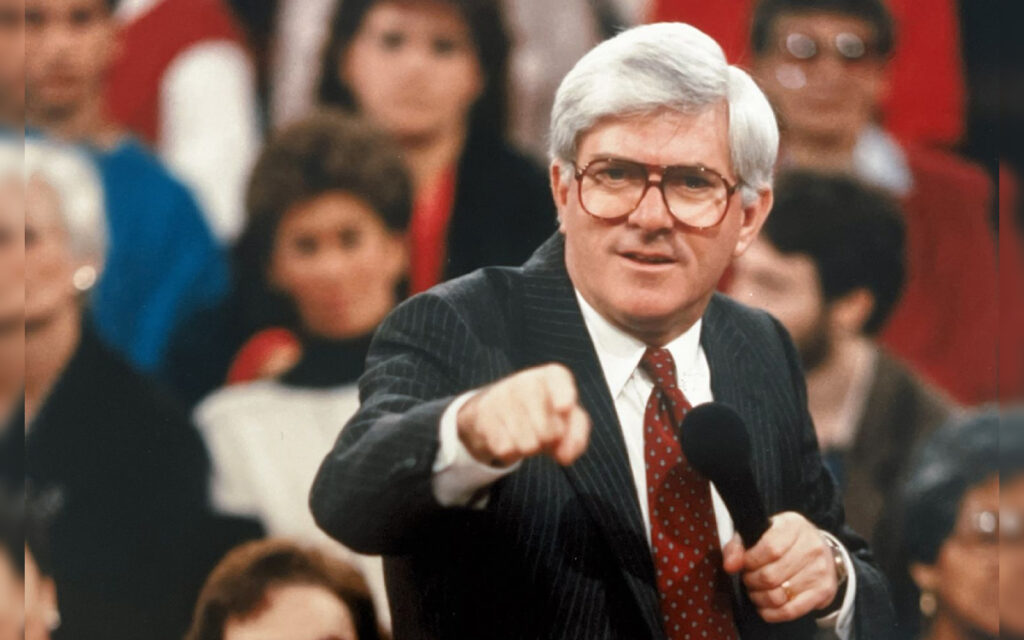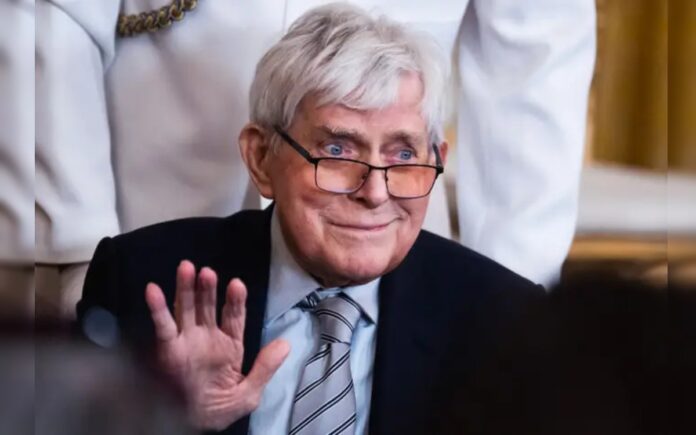New York: Phil Donahue, the legendary television host who revolutionized U.S. daytime television with his groundbreaking talk show that tackled bold and controversial topics, has passed away at the age of 88. According to a statement from his family, Donahue died peacefully on Sunday surrounded by loved ones after battling an illness. NBC’s “Today” show shared the news on Monday.
Donahue’s namesake show, which debuted in 1970, stood out in an era when daytime TV was dominated by soap operas, game shows, and homemaking programs. His show was different, focusing on socially and politically charged topics such as abortion, race relations, and the sexual revolution—issues rarely discussed on television at the time.
Known for his energetic, inquisitive style, Donahue would engage with his guests and studio audience, often moving through the crowd to ensure that all voices were heard. His charisma, signature white hair, and engaging personality made him a household name and a pioneer in the talk show format.
Donahue’s success paved the way for other hosts, including Oprah Winfrey, whose show eventually surpassed his in popularity. Winfrey once credited him, stating, “If it weren’t for Phil Donahue, there never would have been an Oprah show.”
While his influence was felt across the industry, not all that followed in his footsteps met his approval. Daytime TV soon became known for more sensationalist content, with hosts like Jerry Springer and Geraldo Rivera pushing boundaries in ways Donahue disapproved of. He jokingly referred to these shows as his “illegitimate children,” but still expressed affection for them.
As the talk-show landscape evolved and became increasingly brash, Donahue’s show experienced a decline in viewership, leading to its cancellation in 1996 after a 26-year run. It remained the longest-running syndicated talk show in U.S. television history.
Breaking New Ground for Daytime Television

At its peak, The Phil Donahue Show was described by People magazine in 1979 as “a national forum for America’s housewives.” Donahue attributed his success to the intellectual engagement the show fostered. “I think they appreciate the issues the show raises and enjoy the challenge of getting emotionally and intellectually involved in what’s happening,” Donahue remarked in a 1979 People interview. “There are no prizes and nobody screams, we put on an honest sharing of ideas.”
Donahue, raised in a Roman Catholic family, was also among the first to confront the issue of sexual abuse in the Catholic Church. His 1988 episode on clergy abuse brought the topic to national attention, with subsequent episodes continuing to give victims a platform to share their stories.
Also Read | Government on PM Modi’s Upcoming Ukraine Visit: A Balancing Act in Russia-Ukraine Conflict
Beyond his talk show, Donahue’s later work included a brief stint hosting a program on MSNBC from 2002 to 2003, and co-directing the 2006 documentary Body of War, which took a critical stance on the U.S. invasion of Iraq, highlighting the story of an American soldier paralyzed in the conflict.
Despite his focus on serious issues, Donahue wasn’t above lighter content, devoting episodes to topics ranging from celebrity interviews to quirky discussions about misdiagnosed allergies. He once even wore a skirt for an episode about cross-dressing.
His influence was widely recognized, earning him nine Daytime Emmy Awards for best talk show host.
Also Read | Russia Halts Peace Talks with Ukraine After Kursk Attack, But Keeps Proposals Open
Life and Legacy

Born on December 21, 1935, in Cleveland, Ohio, Donahue was the son of a furniture salesman and a department store clerk. He graduated from the University of Notre Dame and worked his way up in broadcasting before being given the opportunity to host The Phil Donahue Show in Dayton, Ohio, in 1967. His first guest was an atheist, a move that sparked controversy but set the tone for his fearless approach to taboo topics.
The show gained national syndication in 1970, and Donahue relocated it to Chicago in 1974, before moving it again to New York in 1984 to be closer to his second wife, actress Marlo Thomas. Donahue and Thomas married in 1980, five years after his first marriage to Marge Cooney ended in divorce. Donahue had five children from his first marriage—four sons and a daughter.
Donahue’s legacy as a trailblazer in television, his willingness to address controversial issues, and his commitment to giving a voice to the voiceless will endure.



